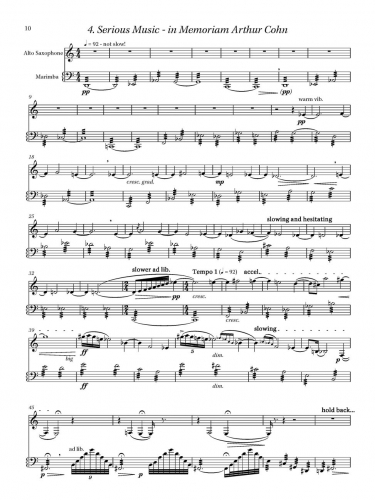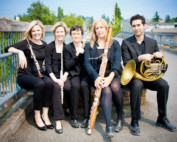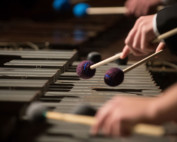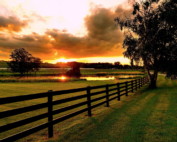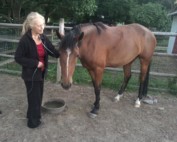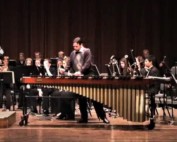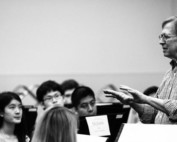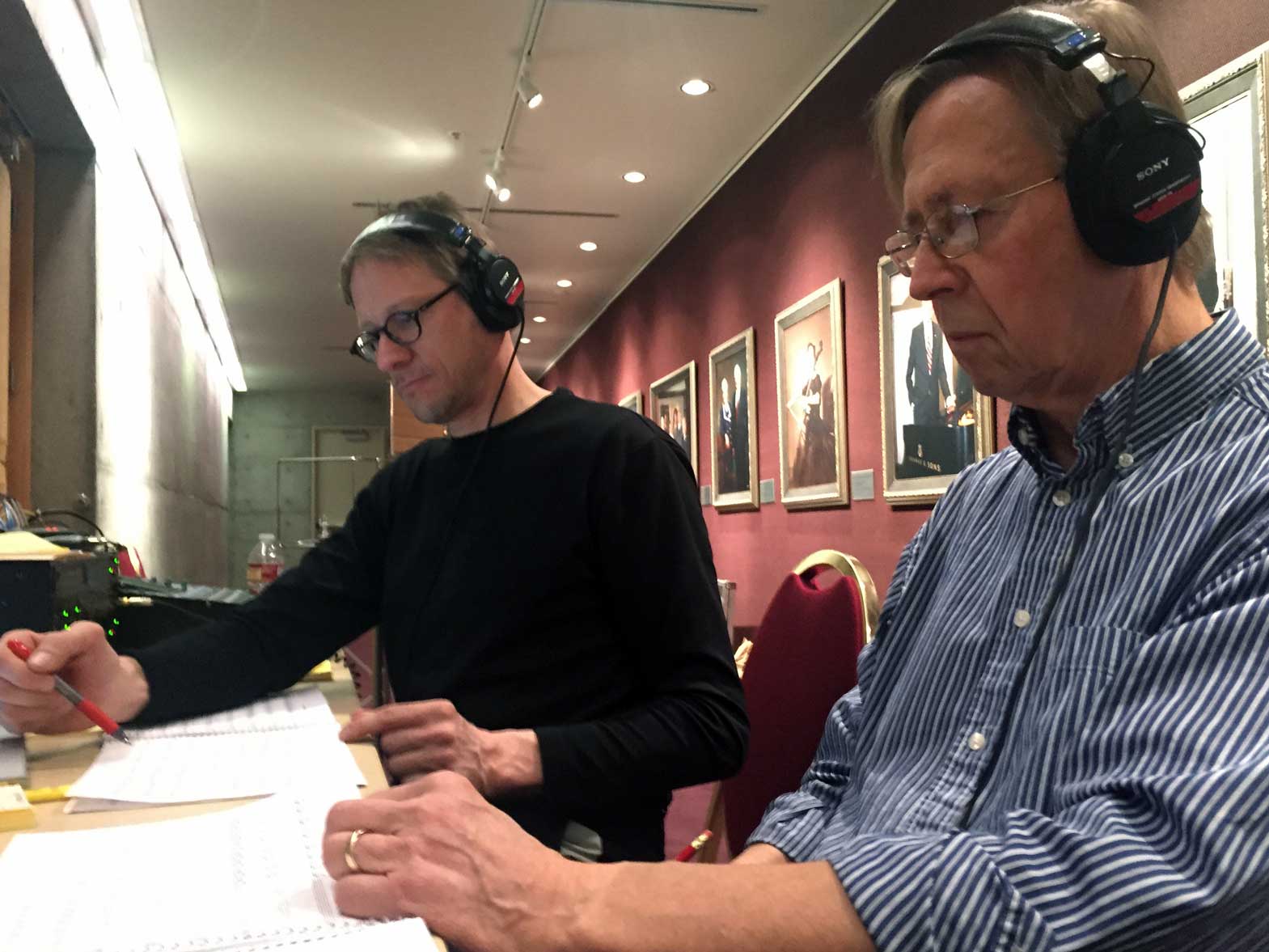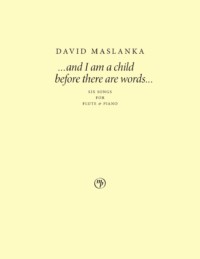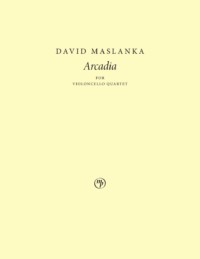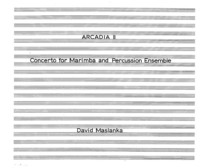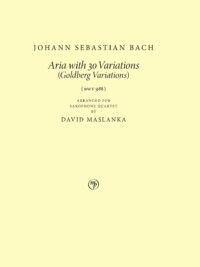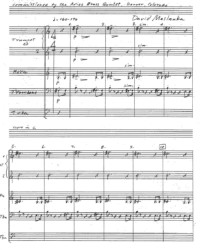Project Description
Solo Alto Saxophone and Marimba
1998
27 min.
Listen Now
Steven Jordheim, solo saxophone, Dane Richeson, marimba
On the album The Music of David Maslanka
Movements
- Song for Davy
- Lost
- Hymn Tune with Four Variations
- Serious Music – In Memoriam Arthur Cohn
- Summer Song
- Song for Alison
- Evening Song
Commissioned by
Steven Jordheim and Dane Richeson of the Lawrence University Conservatory of Music
Program Note
“Song Book” was commissioned by Steven Jordheim and Dane Richeson of the Lawrence University Conservatory of Music, and was composed in the summer of 1998.
The Bach four-part chorales have become a central part of my music study. Playing and singing a few of them each day has become my way of making the transition into composing time. I sing the soprano, alto, tenor, and bass successively while playing all the parts at the keyboard. At this writing I am on my ninth pass through the collection. Which each pass I am drawn deeper into the relationship of line to line – how one borrowed melody (the chorale tune) generates three other beautiful melodies in the same space, and how all parts together generate a pattern of harmonic movement. I am fascinated by the process of the pieces and they have become a strong influence on my composing.
Three chorale melodies appear in “Song Book”. I have taken them quite out of their liturgical context. Their titles inspire an emotional response in me, and out of this comes a music that expands on the original tune. My feeling for quotation is twofold. First, when a pre-existing melody comes to mind or hand while I am writing a new piece, it is a suggestion that the tune has something more to say, and that it will unfold differently in the new context. Secondly it allows for the process of “going underneath” the old tune to find something quite different and new. I let this happen because it seems that deeper connections are trying to work themselves out over many years and across many pieces. Folk and jazz artists do this as standard procedure.
The movements of “Song Book” are relatively brief. They have a particular thing to say, a particular mood and attitude to express, and then they are done. I think of the pieces as emotional scenes.
- “Song for Davy” is a reworking of the chorale melody “Das alte Jahr vergangen ist” (“The Old Year is Past”). This is a song for my young self, written at a time of personal transition. The music touches a very old memory chord and has a wistful and haunting character.
- “Lost” is based on the chorale “Herr, Ich habe misgehandelt” which translates roughly as “Lord, I have done the wrong thing”. Out of this sensibly comes the feeling of being lost and needing help.
- “Hymn tune with Four Variations” is the only movement that uses a hymn tune verbatim. The melody is “Werde Munte, mein Gemute” (“Be strong my heart”). Each variation is a successive speeding up of the chorale statement, with the last being a chaotic scramble.
- “Serious Music – In Memoriam Arthur Cohn” is the longest and severest piece in the set. Arthur Cohn was for many years Director of the Serious Music Department of Carl Fischer, and over a lifetime of stalwart champion of living composers and new music. My association with Fischer began through Arthur in 1974, and over the years he became both mentor and friend. His death in 1998, though not untimely, was a great sadness for me. The designation “Serious Music” by the Carl Fischer Company of what would otherwise be called “Concert Music” has always amused me. And so I have written a VERY serious piece for Arthur and hope that he appreciates the little joke.
- “Summer Song” is a sweet piece that needs no further explanation.
- “Song for Alison” is for my wife, who has been a grounding influence on me for many years. She is not a musician, but has, through her kindness, steadiness, and love, provided a safe haven for my flights of fancy.
- “Evening Song” brings to mind some of my favorite music, the Op.116 Intermezzos by Brahms. “Evening Song”, like other pieces in the set, is an openly Romantic music. It is ultimately quiet and resigned, but has, over its course, an urgent and passionate statement to make.
Program Notes by David Maslanka
Further Reading
Maslanka Weekly: Best of the Web – No. 99, Even More New Performances of Chamber Music
Maslanka Weekly highlights excellent performances of David Maslanka’s music from around the web. This week, we feature three new performances of chamber works: Quintet for Winds No. 3, Song Book for Alto Saxophone and Marimba, and Sonata for Bassoon and Piano.
Maslanka Weekly: Best of the Web – No. 92, New Performances of Percussion Music
Maslanka Weekly highlights excellent performances of David Maslanka’s music from around the web. This week, we feature three new outstanding performances of some of David’s works for percussion: My Lady White, Hohner, and Song Book for Alto Saxophone and Marimba.
Maslanka Weekly: Best of the Web – No. 70, Evening
Maslanka Weekly highlights excellent performances of David Maslanka’s music from around the web. This week, we feature three of David’s compositions that traverse the evening landscape: "Evening Song" from Song Book for Alto Saxophone and Marimba, Evening Song for Horn and Piano, and "Our Prayer of Thanks" from A Carl Sandburg Reader.
Maslanka Weekly: Best of the Web – No. 55, Alison
Maslanka Weekly highlights excellent performances of David Maslanka’s music from around the web. This week we celebrate the life of Alison Matthews by featuring three of David's works that have a movement dedicated to her: "Alison" from Symphony No. 10, "Song for Alison" from Song Book for Alto Saxophone and Marimba, and "For Pretty Alison" from My Lady White.
Maslanka Weekly: Best of the Web – No. 44, Songs Without Words
Maslanka Weekly highlights excellent performances of David Maslanka’s music from around the web. This week, we feature three beautiful examples of David's "Songs Without Words," of which there are literally dozens to choose from: "Awakening" from Songs for the Coming Day, Evening Song, and "Lost" from Song Book for Alto Saxophone and Marimba.
Maslanka Weekly: Best of the Web – No. 7, Tribute
Maslanka Weekly highlights excellent performances of David Maslanka’s music from around the web. This week, we remember the life of David Maslanka and Alison Matthews with unforgettable performances of Symphony No. 4, "Song for Alison" from Song Book for Alto Saxophone and Marimba, and Symphony No. 10: The River of Time.
Maslanka Weekly: Best of the Web – No. 4, The Marimba
Maslanka Weekly highlights excellent performances of David Maslanka’s music from around the web. This week, a marvelous Concerto for Marimba and Band, Variations on Lost Love, and Song Book for Alto Saxophone and Marimba.
David Maslanka: Works for Younger Wind Ensembles
Here are more than twenty works for wind ensemble, arranged in approximate ascending order of difficulty, with commentary by David Maslanka
Recording the Wind Ensemble Music of David Maslanka
Mark Morette of Mark Custom Recording shares his extensive experience in recording wind ensembles.
Interview with Russell Peterson
Russell Peterson, professor of saxophone at Lawrence University in Appleton WI, interviewed David Maslanka on 30 November 1998 after premieres of Mountain Roads for saxophone quartet, commissioned and performed by the Transcontinental Saxophone Quartet and [...]
